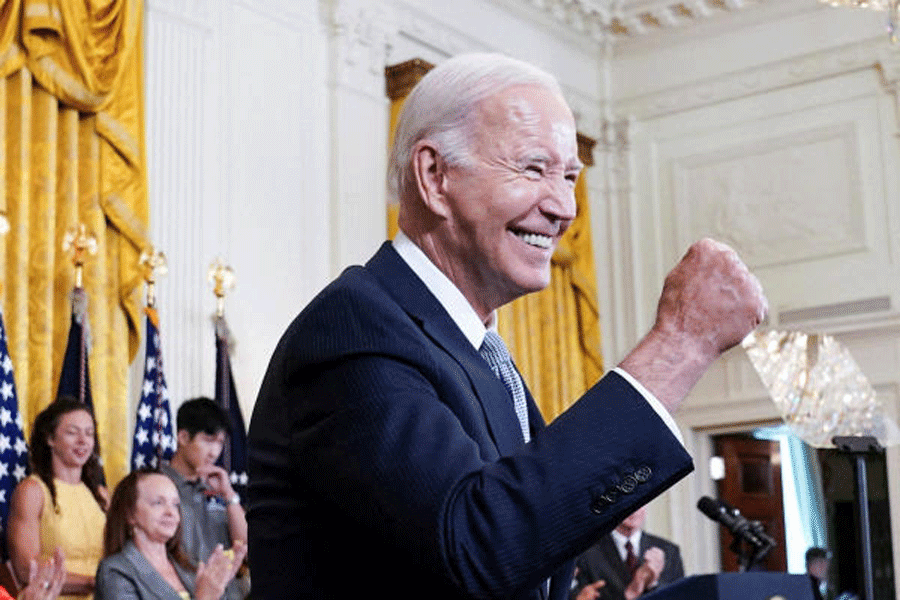With threats growing in Asia, the leaders of the US, Japan and South Korea will meet at Camp David on Friday, taking a major step toward a three-way military and economic partnership that would have been nearly inconceivable before Russia’s invasion of Ukraine.
As the US has tried to counter challenges from both China and North Korea, one key obstacle has been the tense and sometimes downright hostile relationship between Japan and South Korea, its two most important friends in the region.
Now, Tokyo and Seoul are trying to quickly move past seemingly irresolvable disputes over the bitter history between them, as Russian aggression against Ukraine highlights their own vulnerabilities in a region dominated by China.
President Joe Biden hopes to cement the nascent improvement in relations when he hosts Prime Minister Fumio Kishida of Japan and President Yoon Suk Yeol of South Korea at the Maryland presidential retreat. It will be the first time that leaders of the three nations have ever met outside the context of a larger summit, as well as the first time that Biden has invited world leaders to Camp David.
Secretary of state Antony J. Blinken said this week that the meeting would give the three heads of state a chance to talk about concrete steps toward maintaining regional peace and stability.
That’s diplomatic speak for “the need for a response to the challenges coming from China”, said Tetsuo Kotani, a senior fellow at the Japan Institute of International Affairs.
But Russia will lurk in the meeting’s background, Kotani said. Moscow’s attempt to seize Ukraine by force has sharpened the focus on Beijing’s threats to do the same to Taiwan. It has also raised concerns about the growing alignment among China, Russia and North Korea, all nuclear powers.
Trilateral missile drills last month between the US, Japan and South Korea in the sea between the two Asian nations were followed by military exercises between China and Russia in nearby waters.
The gathering sense of threat has destroyed complacency in Seoul and Tokyo that had been a hurdle to forming a tighter three-way partnership with the US, which has acknowledged for years that it cannot counter China alone. And it has pushed both Asian capitals to play a more active role in Europe, where they have provided aid to Ukraine and pursued closer ties with Nato.
The meeting at Camp David will be an opportunity to consolidate and institutionalise the progress that Washington, Seoul and Tokyo have made in the past year in tightening their ranks, officials from the nations said.
The US has spent decades fruitlessly trying to get Japan and South Korea to work together on security issues.
Yoon’s efforts to improve ties with Japan have galvanised popular anger ahead of a legislative election in April. Kishida, too, has a weak political position at home, where mismanagement of domestic issues has hurt his popularity, and where more conservative politicians are wary of anti-Japanese sentiment in Seoul.
With that in mind, one of the meeting’s key goals is to embed mechanisms of cooperation “in the DNA” of the three governments and to “create a new normal” that will be difficult to reverse, Rahm Emanuel, the US ambassador to Japan, said in a recent interview.
Kim Tae-hyo, a deputy national security adviser to Yoon, said that the South Korean administration expected the summit to “establish a
key structure of trilateral cooperation and institutionalise it”.
The most visible manifestation is likely to be a pledge to hold an annual meeting among the countries’ three leaders. More practically, officials are expected to announce expanded cooperation not only in joint military drills and military information-sharing but also in artificial intelligence, supply chains and cyber and economic security.
The three heads of state will also discuss concrete steps for deterring North Korea’s nuclear and missile threats, Kim said.
New York Times News Service











